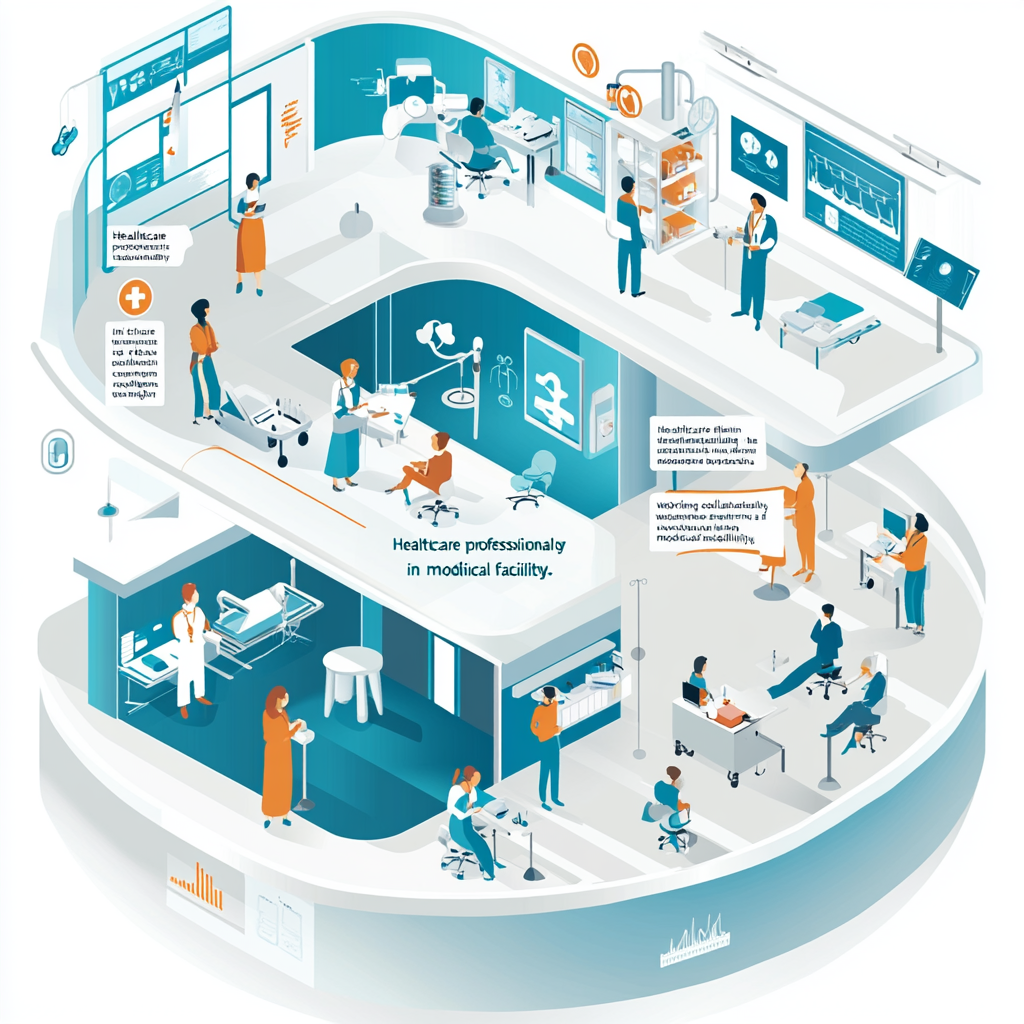
We Value Your Privacy
We use cookies to ensure basic functionalities and to enhance your experience. You can accept or decline cookies, or manage your preferences.
Privacy Policy | Cookies Policy
Explore the dynamic landscape of the U.S. healthcare job market, uncovering the myriad opportunities and challenges that professionals face in this booming industry.
5min read
The healthcare sector in the United States is one of the most dynamic and rapidly growing industries. With an aging population and increasing demand for medical services, the need for healthcare professionals has never been greater. According to the Bureau of Labor Statistics, the healthcare industry is projected to add more jobs than any other occupational group. This growth is driven by a variety of factors, including advancements in medical technology, an emphasis on preventive care, and the expansion of healthcare coverage. For those entering the job market, the opportunities are abundant, but so are the challenges.
One of the biggest draws to a career in healthcare is the potential for growth and advancement. Whether you are just starting your career or looking to advance, the healthcare field offers a variety of paths. From nursing and physician roles to specialized positions like radiology and physical therapy, there is something for everyone. Many healthcare employers also offer tuition reimbursement and continuing education programs to help employees further their careers. Additionally, the rise of telemedicine and health IT has created new roles and opportunities in the industry. The key to capitalizing on these opportunities is continuous learning and adaptability. Staying updated with the latest industry trends and upgrading your skills can significantly enhance your career prospects.
Despite the many opportunities, the healthcare sector is not without its challenges. One of the most significant issues is the high level of stress and burnout among healthcare workers. Long hours, demanding work conditions, and emotional strain can take a toll on mental and physical health. According to a report by the American Medical Association, burnout rates among healthcare professionals are alarmingly high. Additionally, the industry is facing a shortage of qualified professionals, which exacerbates the workload for existing staff. Navigating these challenges requires a strong support system, effective time management, and ongoing mental health care. Institutions are increasingly recognizing the importance of employee well-being and are implementing measures such as wellness programs and flexible work schedules to address these issues.
Technology is revolutionizing the healthcare industry, affecting not only patient care but also the job market. The adoption of electronic health records (EHRs), telemedicine, and advanced diagnostic tools are just a few examples of how technology is changing the landscape. For healthcare professionals, this means new opportunities and the need for new skills. The integration of artificial intelligence (AI) and machine learning in healthcare is also creating specialized roles. However, technology also presents challenges, such as the need for continuous training and the risk of job displacement in certain roles. Embracing technology and staying updated with the latest advancements is crucial for those looking to thrive in the modern healthcare job market.
Education and certification play a critical role in the healthcare job market. Most healthcare positions require specific qualifications and certifications. For instance, registered nurses must pass the NCLEX-RN exam, and physicians must complete residency programs and obtain board certification in their specialty. Continuing education is equally important as it helps professionals stay updated with the latest medical practices and technologies. Many healthcare organizations offer support for ongoing education, making it easier for employees to meet certification requirements. Investing in education and certification not only enhances job prospects but also ensures the delivery of high-quality care to patients.
Looking ahead, the future of the healthcare job market appears promising but will require adaptation to changing circumstances. The ongoing advancements in medical technology, combined with increasing health awareness and preventive care, are likely to drive continued growth. However, addressing challenges like workforce shortages and burnout will be critical. Policies and initiatives aimed at improving healthcare access and affordability will also play a significant role in shaping the job market. For aspiring and current healthcare professionals, staying informed about industry trends and being flexible in career planning will be essential for success.
Top job roles include registered nurses, physicians, physician assistants, medical and health services managers, and specialized roles like radiologists and physical therapists.
Managing stress and burnout involves effective time management, seeking mental health support, and participating in wellness programs offered by employers.
Technology is creating new roles, requiring new skills, and improving patient care. However, it also presents challenges such as the need for continuous training and potential job displacement in certain roles.
Continuing education helps healthcare professionals stay updated with the latest medical practices and technologies, ensuring high-quality patient care and enhancing career prospects.
The outlook is promising, driven by an aging population, advancements in medical technology, and increasing health awareness. However, addressing workforce shortages and burnout will be critical.